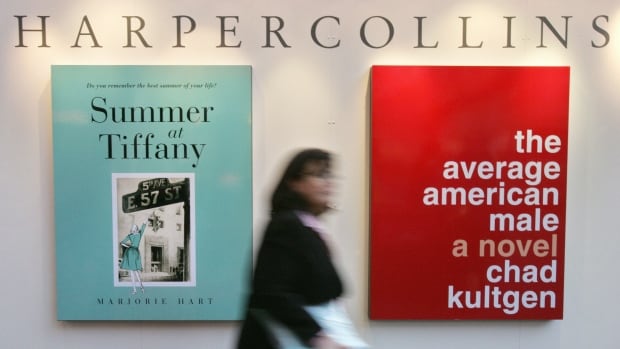Authors are voicing concerns after a major book publisher offered payments in exchange for permission to use their books to train artificial intelligence.
Daniel Kibblesmith, an Emmy-nominated writer and comedian who writes for The Late Show with Stephen Colbert, posted a memo from HarperCollins — a major publisher that is also home to dozens of Canadian authors — offering $2,500 US to use his children’s book Santa’s Husband to train an AI model for an unnamed “large tech company.”
“Abominable,” Kibblesmith posted to the social media platform Bluesky on Friday — with screenshots of the messages alongside his response. He declined.
The memo, forwarded to Kibblesmith and his illustrator by his agency, acknowledges controversies surrounding AI, including that it “may one day make us all obsolete.”
“That said, the technology is already here and is being used,” it continues, claiming the offer has already been agreed to by “several hundred authors.”
Risk of gutting the industry
Kibblesmith told CBC News he was disappointed, but not surprised, by the offer.
“I declined very succinctly, and that was the end of that conversation,” he said. “I know that most of what I’ve published has already been scraped without my consent. It’s just that no one ever asked me before. So in being asked, I was given the opportunity to say no for the first time.”
But he understands why some would accept the offer, saying being a freelance creator does not “leave the average person much wiggle room for moral righteousness.”
Kibblesmith says the march of AI in literature is reminiscent of the early days of music file-sharing program Napster.
It risks “creating a new paradigm where the expectation will be on-demand, free, satisfactory media that guts the industry as it previously existed, in a way that it will never recover from,” he said.
A HarperCollins spokesperson says the publisher reached an agreement with the tech company to allow “limited use of select nonfiction backlist titles” for training AI models. It was not immediately clear why the offer was extended to a fiction writer such as Kibblesmith.
Celebrated Canadian author Margaret Atwood says she’s too old to be concerned about artificial intelligence and how it could affect her career, but admits that’s not the case for younger artists. As she works on her memoir, Atwood says she wants to tell stories about the ‘stupid things and catastrophes’ that have happened in her life, rather than the books she’s written.
“HarperCollins has a long history of innovation and experimentation with new business models. Part of our role is to present authors with opportunities for their consideration while simultaneously protecting the underlying value of their works and our shared revenue and royalty streams,” the spokesperson said in via email.
“This agreement, with its limited scope and clear guardrails around model output that respects author’s rights, does that.”
The spokesperson did not confirm whether the deal applies to Canadian authors.
‘Deeply discouraging’
Author Elisabeth de Mariaffi, who is from Toronto and now lives in St. John’s, called the news “deeply discouraging.”
She says she’s not received the offer, but would reject it. HarperCollins has been her publisher since 2015, when she released her novel The Devil You Know.
“I do feel a lot of pressure to write more commercially as it is, and this just feels like the next logical step — ‘Why don’t we just use your writing to train AI? And we can actually just cut you right out of the picture, and it’s only going to cost us $2,500,'” de Mariaffi said.
Some authors, including several Pulitzer Prize winners, are suing companies like OpenAI and Microsoft, accusing them of copyright infringement for training AI models on their writing without permission.

De Mariaffi’s books were included in the Books3 AI data training set published by The Atlantic last year, confirming her work has already been used to train AI models without her consent or payment. On top of that, she says Google Alerts regularly tell her where to illegally download her own books.
“I know people out there are probably thinking, ‘Well, it’s better than having your work stolen for free,'” she said.
“That also seems really tricky to me. Especially in this economy, and the money’s being offered right now, in the middle of November, at a time when many people are stressed out about money… the whole thing seems quite manipulative to me.”
Substantial payout
Canadian children’s writer Kenneth Oppel, who has published numerous books with HarperCollins in Canada and the U.S., including the Silverwing series, also says he has not received the offer, but that for many, the payment would be a significant boost.
For most writers, $2,500 “is quite a bit of money. If you break it down to royalties, that’s like selling anywhere from 2,500 books to 5,000 paperbacks or something,” he said.
Oppel says the offer would be tempting, but questions why the publisher is keeping details of the deal secret, like the name of the tech company and how the price was negotiated.
At this point, he said, it seems inevitable that authors’ work will be ingested to train AI, whether they are going to be compensated or not.
“Honestly, I think it’s probably unstoppable. Every writers’ union in the world could bang the drums together. I think these businesses are so big and impervious and opaque that I don’t think we could stop this.”


